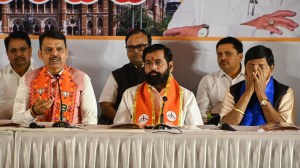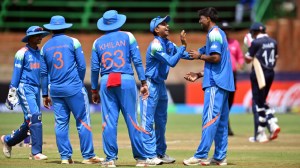Different strokes
MTNL's net tariffsConsumers will get a better deal if the TRAI simply leaves tariff decisions to service providers. After the TRAI hiked l...

MTNL8217;s net tariffs
Consumers will get a better deal if the TRAI simply leaves tariff decisions to service providers. After the TRAI hiked local call tariffs by a ridiculous 100 per cent plus, surfers who operate from homes have been appalled at the high phone bills. What hurts most is the cut in call time from five minutes to three. Students and professionals are the worst affected.
The government thinks that encouragement to IT is all about floating venture funds and holding seminars. The TRAI does not even react. It is now the much maligned MTNL which plans to offer some relief to encourage internet usage. The MTNL board not only approved a reduction in internet charges by 15 per cent, but has also cleared a new tariff package for internet users. We learn that internet numbers will be metered differently from regular calls. If TRAI does not play a spoilsport and refuse to clear the package, the new tariffs should bring much need relief to net surfers.
The 26 per cent riddle
Why areforeign insurance companies so gung-ho about entering India with a mere 26 per cent stake in Indian JVs? Because it gets them a foot in the door and the legitimacy to lobby for a bigger stake. A top insurance expert, however, says that the answer lies in the agreements between the foreign insurance companies and their Indian partners. Foreign insurers who are tying up with relatively small time Indian partners are writing up agreements which simply leverage their 26 per cent stake into complete control.
One bank has an agreement where its foreign partner has the powers to take all important management decisions including the appointment of the MD and the chief financial officer. The Indian bank is going into it with its eyes wide open. In fact, the bank is quite happy to let the foreign firm get a majority stake anytime the rules change. Clearly, all the time wasted by Parliament over debating the minority stake was a futile exercise.
BSE8217;s flash strikes
A quiet little power tussle is on amongthe office bearers at the BSE. The high profile President, Anand Rathi, who started out with a vision is isolated and tired of spending much time sorting out administrative disputes, managing egos and settling flash strikes. The administration has become unwieldy because of the increase in trading volumes and the spread of the BOLT network. Several staff associations have sprung up to represent different functions and cadres and there are frequent clashes over powers and responsibilities.
There have been six flash strikes in the last few months. The issue of finding someone to head the Central Depository has also turned messy. The way things are headed, it shouldn8217;t be long before Rathi decides to focus on this own business.
Enron loves India
In the last couple of weeks, one couldn8217;t open the papers without finding Enron officials quoted on its innumerable plans in telecom, oil and power. Maybe it is simply a coincidence that the Maharashtra government8217;s threat to re-examine the re-negotiatedDabhol power project, particularly Phase-II, coincides with Enron8217;s high visibility. In fact, the state is in a tough spot. The Congress-NCP government which has never looked stable, has to allow the MSEB to hike power tariffs again in order to pay for Enron8217;s high cost of power.
This time the state may be forced to ask domestic consumers to bear the burden since industrial users are already groaning about high power costs and have set up captive consumption units to bypass the state supply system. Is the government merely making noises or will it actually force a cut in tariffs? After all other IPPs in the country are already producing power at a cost that is much below that of Enron8217;s.
Dotcom and common sense
There is this joke going around about the Satyam acquisition of IndiaWorld8217;s sub-domains. What is the difference between dotcom and common sense? Rs 500 crore.
Author8217;s email: suchetadalalyahoo.com
- 01
- 02
- 03
- 04
- 05































